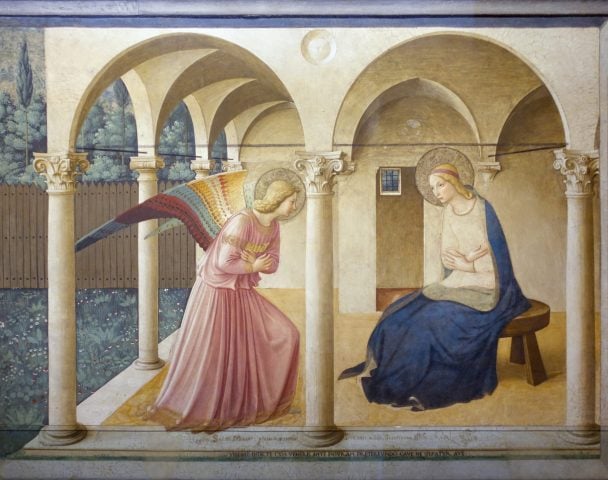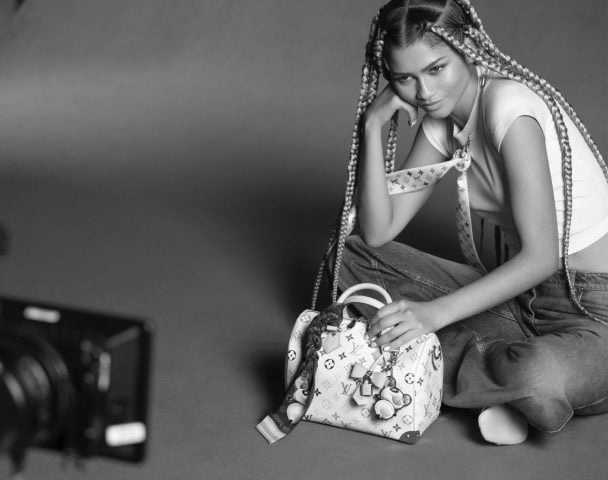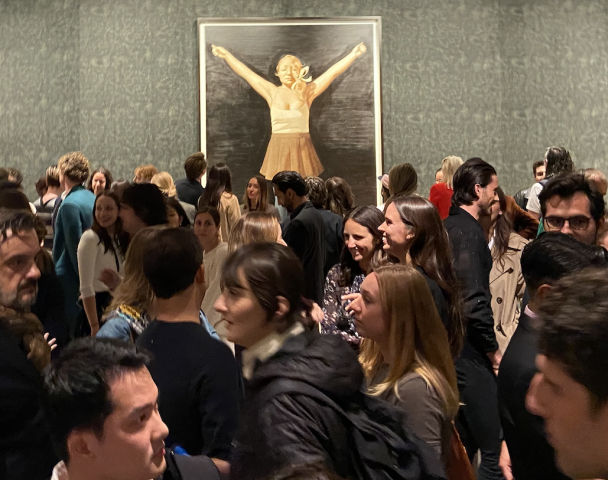Art & Exhibitions
Alison Saar’s Paris Olympics Sculpture Offers a Peaceful ‘Gathering Space.’ See It Here
The artwork is meant to link Paris and Saar's hometown of Los Angeles, which is hosting the 2028 games.
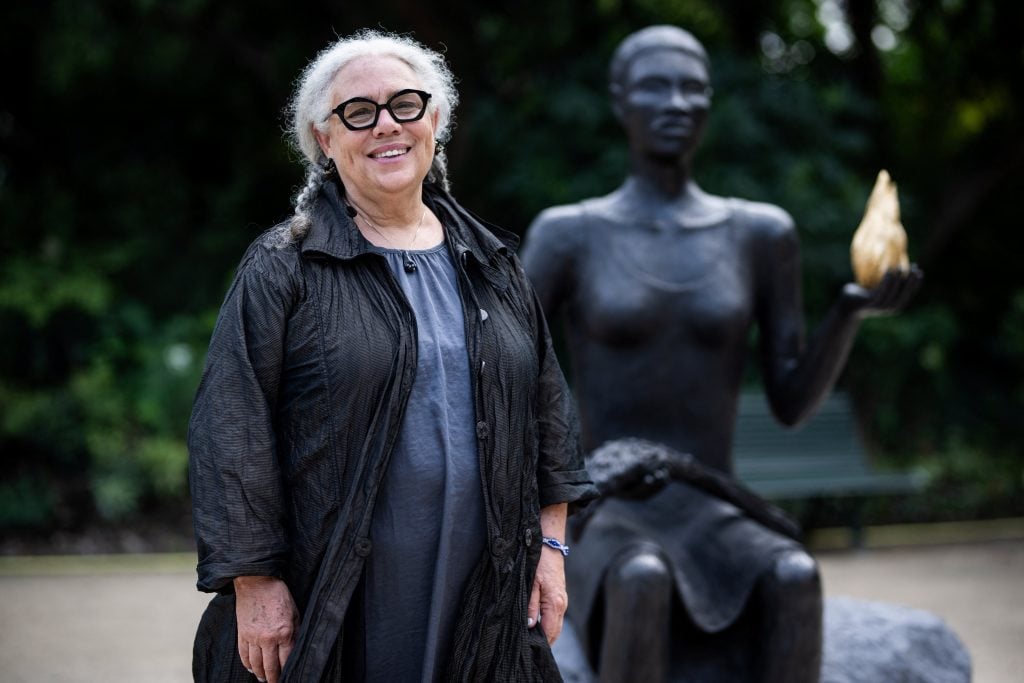
The opening of the Paris Olympics last week also marked the unveiling of a new public artwork by American artist Alison Saar in the Charles-Aznavour Garden on the city’s famed Avenue des Champs-Élysées.
The monument, titled The Salon, depicts a Black woman holding an olive branch and a golden flame, surrounded by a circle of chairs that viewers are welcome to sit upon. It is meant to represent peace, as well as the power of women.
“I wanted to kind of create a place for people outside of these other white male figures to feel like they’re being represented,” Saar told France 24.
The title is a reference American poet Gertrude Stein’s famed salons in Paris, where she would invite artists, writers, intellectuals, and musicians to share their work in her home. Haitian poet Jean d’Amérique did a reading during the work’s unveiling on July 23, and the city is planning future events to activate the monument.
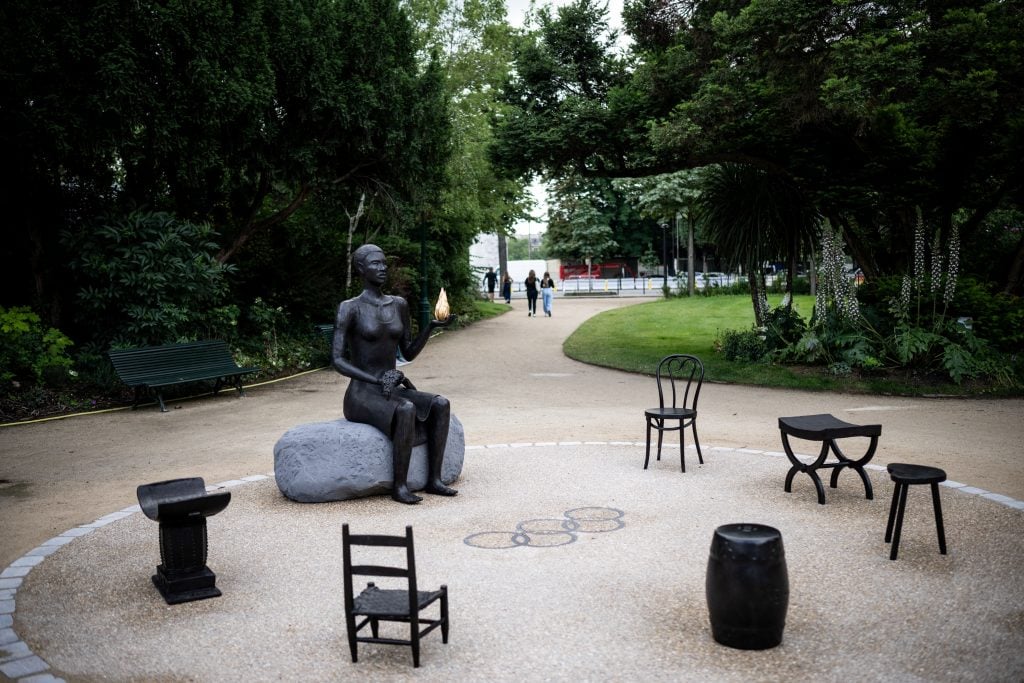
Alison Saar, The Salon (2024) in the Charles-Aznavour Garden at the foot of the Champs Elysees in Paris, 2024. Photo: Julien de Rosa/AFP via Getty Images.
The seats encircle the Olympic rings engraved on the ground, and represent some of the different regions of the world that participate in the games. There is a West African stool, a hand-carved children’s chair from Central America, a French milking stool, a Chinese ceramic garden stool, a European bentwood chair, and an ancient Greek curule seat.
“As opposed to a traditional monument that you walk by or look up to, this is a space where people can come and sit down and hopefully she represents humanity and dignity,” Saar added. “It’s a little daunting, to be honest, to think that one of my pieces would be in this really important historic site… I was really actually a little nervous, but once we had her all installed and people were walking around, she felt very much at home.”
The project came together quickly—Saar didn’t get confirmation of her selection until September 2023. Due both to time constraints and environmental concerns, Saar opted to fabricate the work at Fonderie Fusions in Auvergne, France, rather than having to transport it thousands of miles.
“We worked together at the foundry for a month,” Saar told the Observer. “We signed off on everything to be cast; I came back in April to oversee the patina and talk about the shape of the stonework with the stonemason.”
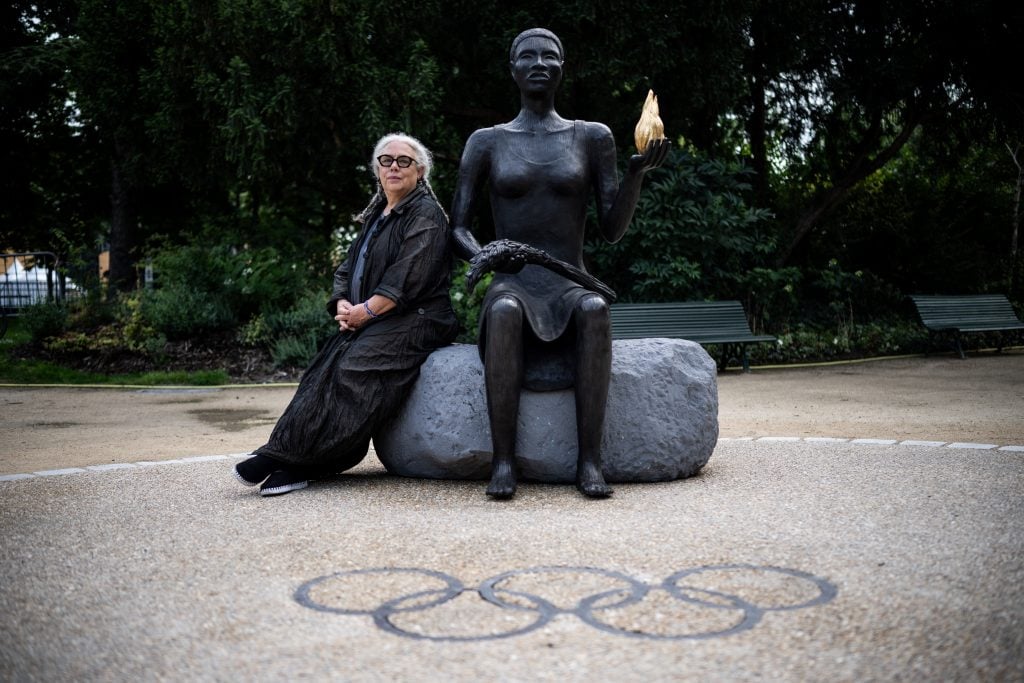
Alison Saar posing with The Salon (2024) in the Charles-Aznavour Garden at the foot of the Champs Elysees in Paris, 2024. Photo: Julien de Rosa/AFP via Getty Images.
The Salon is the latest commission from the Olympic Art Visions program, launched in 2016. It is intended as a symbolic passing of the Olympic torch from the City of Light to the City of Angeles, which is on deck to host the 2028 games, as Saar calls Los Angeles home.
At the 2020 games in Tokyo, it was French artist Xavier Veilhan who installed The Audience as a permanent public work in the Japanese capital. Olympic Art Visions has also commissioned temporary works by Leandro Erlich for the Buenos Aires 2018 Summer Youth Olympic Games and JR for the 2016 Rio Games.
“I am deeply honored to have been selected to create the Olympic sculpture,” Saar said in a statement. “It is my hope that this work of art, a gift to the people and the city of Paris, will become a gathering space for the public to experience the spirit of friendship and interconnection across cultures and borders.”
“Your art is an invitation to take a seat—and reflect on the beauty of diversity of humankind,” International Olympic Committee president Thomas Bach said at the opening ceremony for the work. “Each seat in this collection represents different cultures, traditions and histories. Salon is an invitation for dialogue; for exchange; for coming together; for sharing. In this way, your sculptures are a wonderful illustration of what happens at the Olympic Games.”
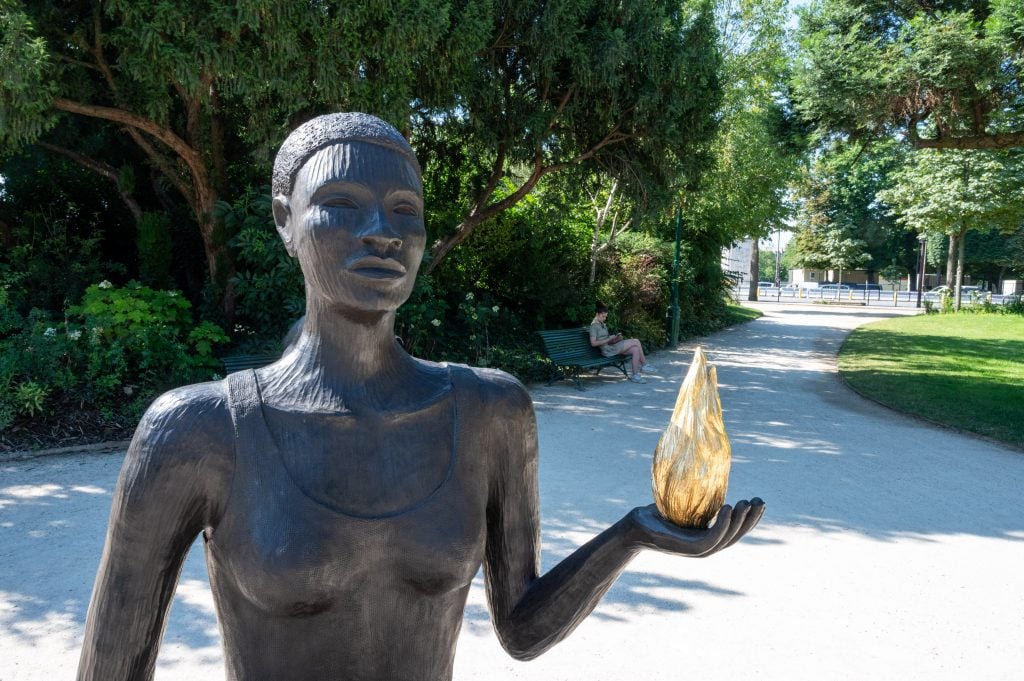
Detail of Alison Saar, The Salon (2024) at the Charles-Aznavour gardens at the foot of the Champs-Elysees, Paris, France, 2024. Photo: Riccardo Milani / Hans Lucas / Hans Lucas via AFP via Getty Images.
The new piece is Saar’s first public artwork outside the U.S. She notably created New York City’s first public monument to a Black woman, a sculpture of Harriet Tubman in Harlem, in 2008.
The artist also recently installed her new work Tree Souls at the Equal Justice Initiative’s Freedom Monument Sculpture Park in Montgomery, Alabama, which also features works by artists including Kehinde Wiley and Simone Leigh, as well as historic artifacts.


